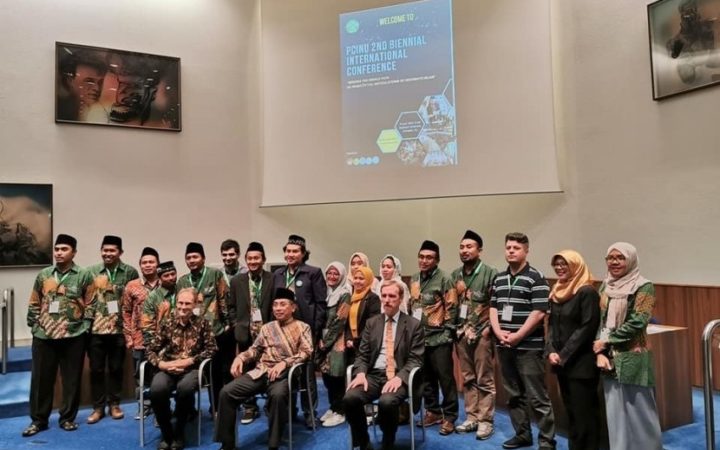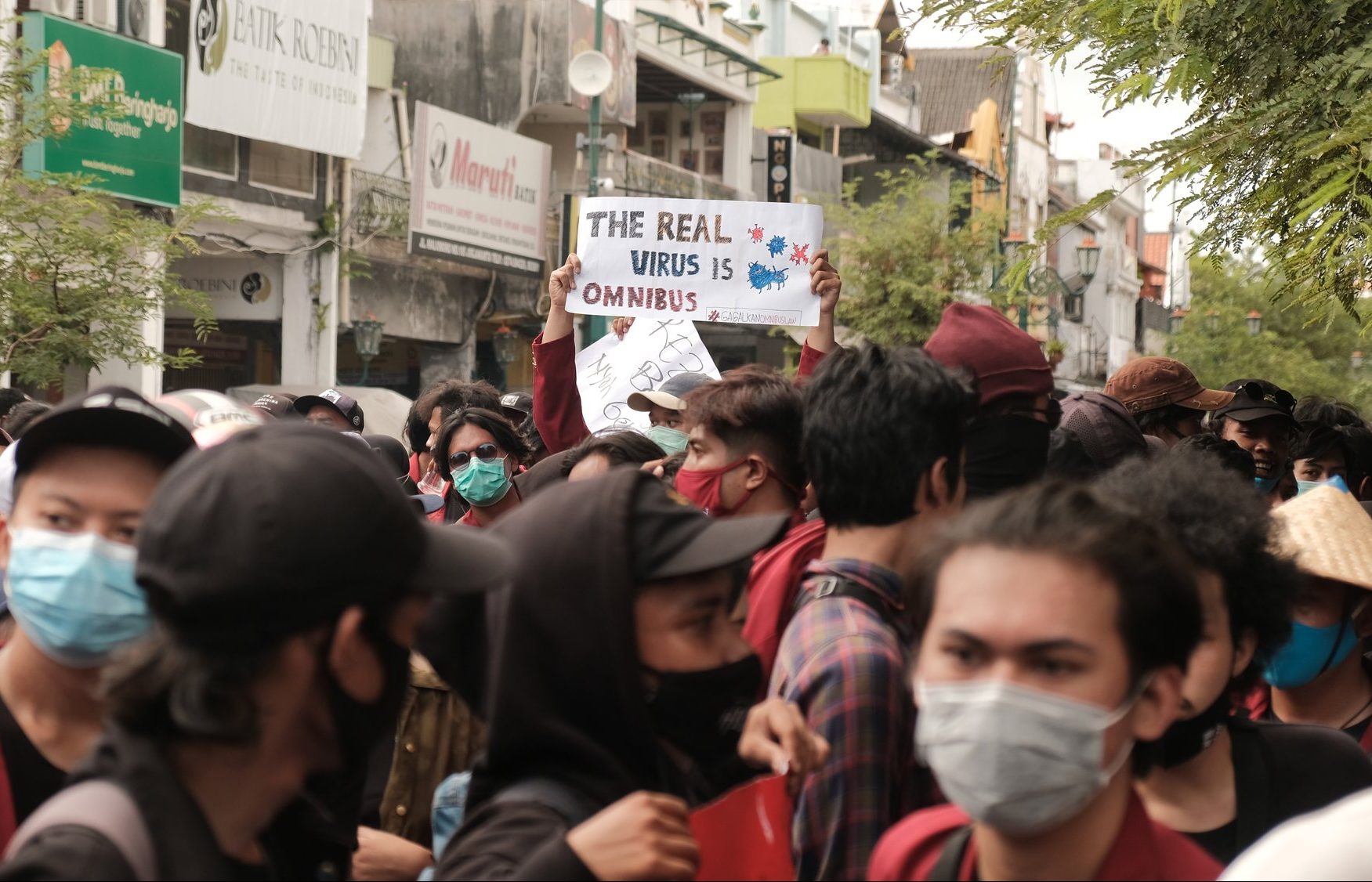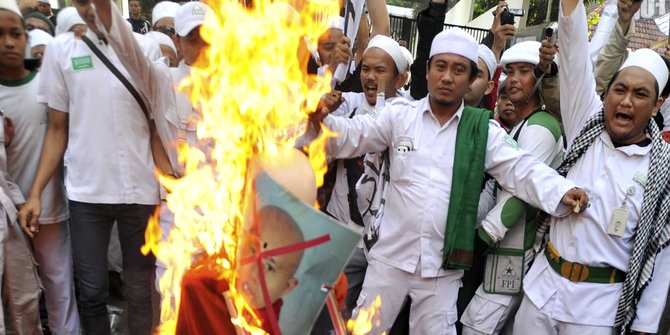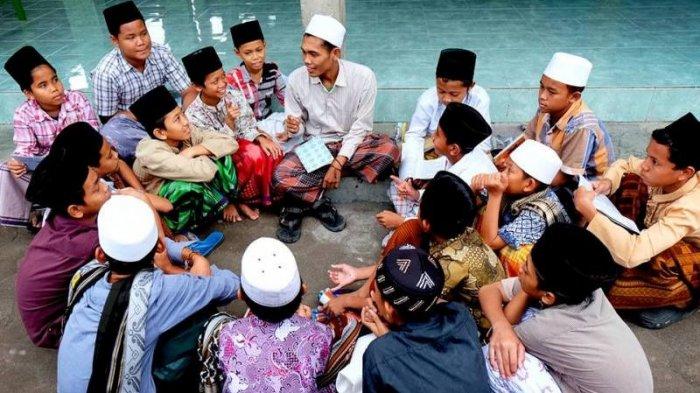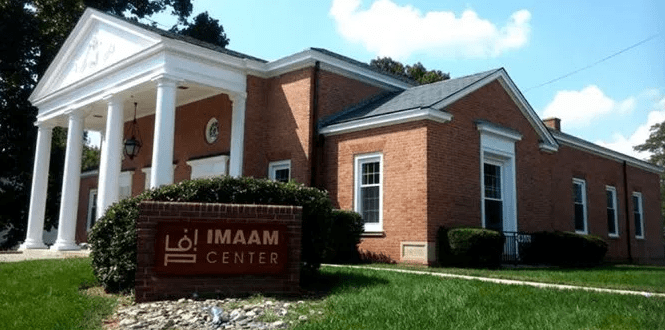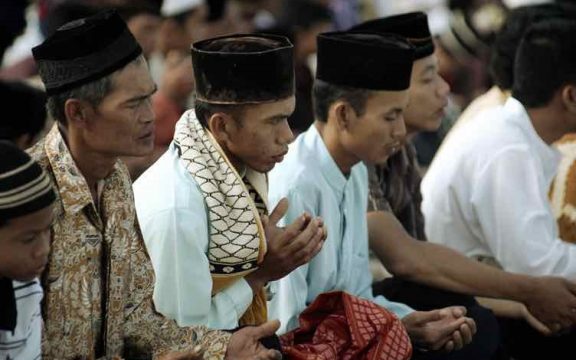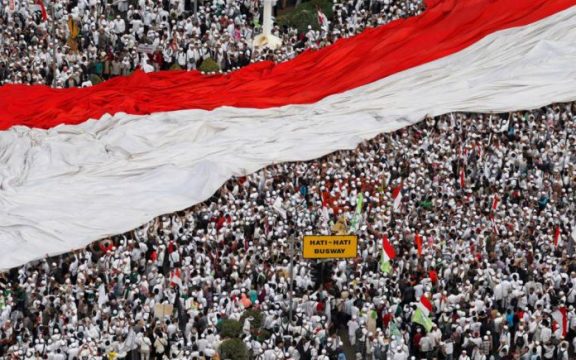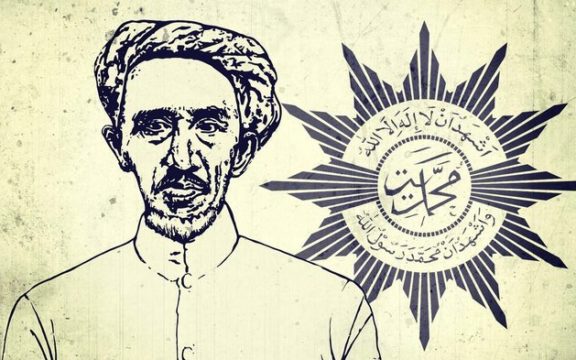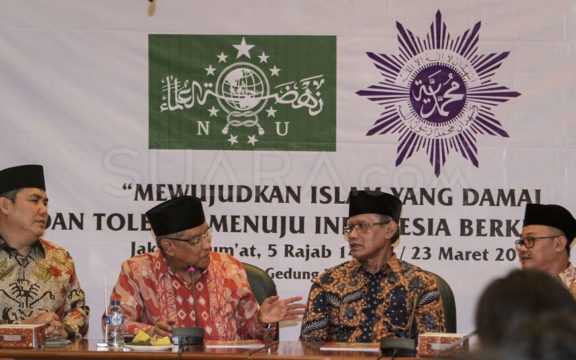On Thursday, 20 June 2019, several Indonesian scholars in Oslo, Norway declared their support for the nomination of the Indonesian two largest Islamic organisations namely Nadhlatul Ulama (NU) and Muhammadiyah for the Nobel Peace Prize. Among the reasons for this support is that both organisations have been promoting religious tolerance and become the face of moderate Islam in Indonesia.
Coincidently, with the spirit of the same initiative on promoting moderate Islam, the Special Branch of Nahdlatul Ulama for the Netherlands (PCINU Belanda) successfully held an international conference with the topic of ‘Seeking the Middle Path (al-wasatiyya): Articulations of Moderate Islam’ on 19 June 2019. This conference was supported among others by Radboud University Nijmegen, the Indonesian embassy for the Netherlands and the Ministry of Religious Affairs.
At the conference, one of the keynotes speakers, Dr Timothy Winters (Sheikh Abdul Hakim Murad)—the Dean of the Cambridge Muslim College—stated that with regard to the moderate Islam it is preponderance to understand the Islamic text with a contextual approach. He contrasted it with the literalism in reading Qur’ān which is often found and adopted by a few Muslims in our day of age. He continued his argument by saying that literalism is based on superficial intuitiveness and it was produced without asserting layers upon layers rigour scholarly argumentations.
In the end, what comes out of it is less profound and often incorrect understanding and interpretation. The danger of this attitude is that it is impossible for the literalist to reach the right understanding of the scripture. This type of approach, according to Dr Winters, it is religious fundamentalism.
Another keynote speaker was Dr Carool Kersten—a scholar at King’s College London—emphasized the situation of global politics especially in the post 9/11 era in which the principle of middle path Islam is needed. In the context of Indonesian Islam, Kersten indicated the success of Islamic organisations like Nahdlatul Ulama (NU) and Muhammadiyah in emancipating Muslims through education and dakwah (Islamic proselytization).
These two organisations were established in the colonial era, but both have played pivotal roles throughout many political changes in Indonesian history. The emergence discourses of ‘Islam Nusantara’ (Islam of the Archipelago) and ‘Islam Berkemajuan’ (Progressive Islam) in 2015 showed the efforts of the two organisations in encouraging moderate Islam in Indonesia.
Adding to these two keynote speeches, the Indonesian Minister of Religious Affairs, Mr. Lukman Saifuddin expressed that moderate Islam means to take a middle position in the way of thinking, attitude, and behaviour. He explains it further by arguing that believers should strive to achieve understanding and practising Islam with balance and avoiding extreme interpretation.
The example of this attitude in the Indonesian context is that he noted the acculturation of Islam with the local culture like the celebration of Eid Fitr in which people are travelling en masse to their hometown (mudik), visiting family and friends. This activity, he concluded, has a significant impact in the Indonesian economy as well as the Indonesian culture. This tradition is also strengthening the social cohesion of the society.
These three keynote speeches, Mr. Yahya Cholil Staquf’s lecture from the Nahdlatul Ulama counsel and panel presentations from the conference presenters from various countries of Europe, Southeast Asia, Australia and the United Stated, signify that the middle path Islam is an essential interpretation that is needed to be promoted and disseminated both in the Muslims world and the Western countries. Not only is the discourse very vital in opposing religious fundamentalism, but also its instrumental tool as an integral part of the everyday life of Muslims around the world. To a greater degree, this practice is meaningful especially with the rising of Islamophobia and right-wing politicians worldwide. The Islamophobia made its voice heard during the conference.
Outside the building of the conference, there were protests in form of written wall-graffiti and banner which say ‘Islam=War’ and ‘Sharia has no place in the Radboud Campus’. The local news reported the protest action. According to them, Islam is dangerous due to its vision of the implementation of Islamic law. Scrolling through the local news website one may read in the commentary column that some readers are objected the protest action and rejected the anti-Islam statement of the nationalist politician who belongs to the Party for the Freedom (PVV). It is said that any Muslim—especially the Indonesian Minister of Religious Affairs in this case—has the right to express his or her idea despite disagreements from the opposing side.
This public discourse shows that misunderstanding toward Islam in the form of Islamophobia is real. Many people in the Western world acknowledge Islam as violent and threatening ideology. In this light, promoting a peaceful Islam that is upheld by Nahdlatul Ulama and Muhammadiyah is necessary. Otherwise, the literal Islam will take the place and possibly become the representative image of Islam. Biennial conference of the special branch of Nahdlatul Ulama for the Netherlands must be continued and supported by the Indonesian government.
The reason for such endorsement is to ensure that people in Europe are aware of and understand the real tenet of Islam, which is at the gist of it are moderate and peaceful. In addition to that, the Nobel prize nomination could enhance the international recognition for both NU and Muhammadiyah’s efforts in maintaining the national harmony in Indonesia by promoting moderate values of Islam. This nomination and possible award of the Nobel prize will make the Muslims around the world see Indonesia (and both NU and Muhammadiyah) as the role model to replace the ‘chaotic’ representation of Islam in the Middle East.
Muhammad As’ad is a lecturer at the University of Hasyim Asy’ari (Unhasy), Pondok Pesantren (Islamic boarding school) Tebuireng, Jombang in East Java and a member of The Special Branch of Nahdlatul Ulama for The Netherlands (PCINU Belanda).
![Islami[dot]co](https://en.islami.co/wp-content/themes/jambualas/images/logo.png)
